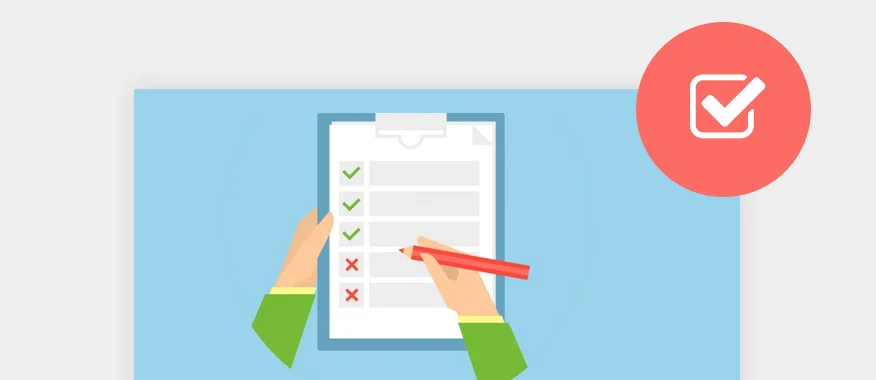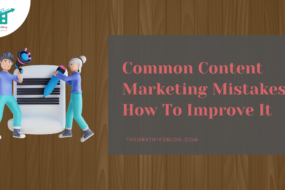
Content Marketing for Small Businesses should be integral to your overall marketing strategy if you run a small business. Assist in growing your target audience, amplify brand awareness and engagement, and generate more leads and sales.
Content marketing involves crafting content pertinent to your business and sharing it on different channels to reach the right target audience. Content can be in various forms, such as blogs, videos, podcasts, content aggregators, infographics, etc.
This blog post will explore the occasions and reasons why content marketing is essential for small businesses. We will also delve into the vital measures for content marketing success for small businesses.
When Should Small Businesses Focus On Content Marketing?
Well, they say content is king, and early you start content marketing for small businesses, the better. Small businesses should focus on content marketing for small business from the start since the content will be a foundation for their brand.
Consistent production and promotion of your online materials are the keys to practical outcomes for content marketing for small businesses.
However, content should be one of many focuses but a priority. As the small business will be engaged with multiple tasks, content creation and sharing must be done parallelly if they want to see successful results from their content marketing efforts.
A few Brand examples are:
Dollar Shave Club and Birchbox Company have taken content marketing to the next level by using content that entertains, educates, and drives the audience to take action.
Content Marketing For Small Businesses Benefits
Content marketing offers numerous benefits for small businesses. Here are two key advantages:
Building Brand Awareness And Credibility
For small businesses with limited marketing budgets, content marketing can be a cost-effective way to raise brand awareness and establish credibility within their industry.
Small businesses can showcase their expertise and knowledge by consistently creating valuable, informative, and engaging content, such as blog posts, articles, videos, infographics, or social media posts.
As customers find this helpful content, they are more likely to remember the brand and view it as a reliable source of information, enhancing brand reputation and credibility. Moreover, content marketing allows businesses to reach a broader audience.
When content is shared and distributed across various online channels, it has the potential to reach prospects who may have yet to be exposed to the brand through traditional advertising methods.
Increased visibility leads to more potential customers becoming aware of and considering the business’s products or services.
Driving Organic Traffic And Lead Generation
Content marketing attracts organic traffic to a small business’s website or social media platforms.
Search engines favor high-quality and relevant content, so well-optimized content can improve a website’s ranking, increasing its likelihood of being featured on the initial page of search results.
This increased visibility in search engines drives more significant organic traffic, as users are more inclined to click on the top results. Additionally, content marketing can be used as a lead-generation tool.
By developing content that tackles the challenges and requirements of their intended audience, businesses can capture the interest of potential customers.
Calls-to-action (CTAs) strategically placed within the content can motivate visitors to perform particular actions, such as registering for newsletters, downloading e-books, or requesting more information.
By collecting these leads, small businesses can nurture them gradually, ultimately transforming them into paying customers.
Content marketing enables small businesses to rival larger enterprises on a more equitable playing ground.
Small businesses can secure a competitive advantage and attain sustainable market growth by providing valuable content, building relationships with their audience, and establishing themselves as industry authorities.
Content Marketing For Small Business – 6 Key Steps For Success
Work On Your Basics
This is the first mistake that every small business makes – they try to jump into content marketing without laying the groundwork. They think producing content alone can attract leads and customers.
But It’s not the way. Before starting content marketing, small businesses should focus on the basics, such as understanding their target audience and creating a well-defined content marketing strategy.
Keyword research is vital for optimizing content and improving search engine visibility. By incorporating the keyword “content marketing ideas for small businesses,” they can generate relevant content that addresses their audience’s needs and interests.
Additionally, leveraging social media platforms and email marketing can amplify their content’s reach and engage with potential customers effectively.
Consistency and quality are key; creating a content calendar and analyzing performance metrics can help refine their content marketing approach over time.
By investing effort in these foundational aspects, small businesses can build a solid content marketing presence and drive sustainable growth for their brand.
- Website
- Design, and
- Analytics
Website
The website acts as the primary introduction for customers or prospects, underscoring the importance of crafting a well-designed, user-friendly, and mobile-responsive interface. This digital cornerstone serves as the canvas where businesses exhibit their identity, emphasizing the critical role of a captivating website in not only attracting but also retaining visitors. The imperative lies in ensuring that the online space effectively communicates the brand’s essence, fostering engagement and leaving a lasting positive impression on those who interact with it.
Design
In the realm of design, critical decisions include selecting colors, fonts, content style, and overall design language. These choices play a pivotal role in shaping the visual identity of the brand, fostering recognition, and creating a cohesive and memorable experience for the audience. Establishing a consistent look and feel across various elements contributes to a unified brand presence.
Analytics
For small businesses, understanding and utilizing analytics tools are essential for gauging content performance. Platforms like Google Search Console, Google Analytics, and other content tracking tools provide valuable insights into user behavior, website traffic, and the effectiveness of content strategies. Analyzing this data empowers businesses to make informed decisions, refine their content approach, and optimize their online presence for better outcomes.
Once the basics are in place, content marketing can be started.

Source : alienwp.com
Build Your Social Media Channels Where The Target Audience Is Present
You already know that content marketing tips for small businesses and social media go hand in hand. Social media offers an excellent platform for content promotion, as your target audience is already spending time there.
So, it’s essential to find out which platforms your target audience is present on and create accounts accordingly.
Then, schedule content sharing across all tips for small business channels at least once a week or more, depending on your audience size.
Doing so can maximize your reach and engagement and build an online presence for your small business.
Remember to tailor your content to each platform’s unique characteristics and audience preferences, offering valuable insights and solutions to their problems.
Consistency and relevance are critical to effectively leveraging content marketing on social media for your small business.
There are several ways to determine where your target audience is active:
- Look at your competitor’s social media profiles to identify where they have the most engaged and loyal followers.
- Use tools like Google Analytics to determine online consumer behavior.
- Conduct surveys and ask your target audience which social media channels they prefer.
So, after finding the right platforms, create content tailored to those networks.

Source : mydmi.net
Build Your Content Strategy
Content marketing produces and distributes valuable, pertinent, consistent content to attract and retain a well-defined audience.
An effective content marketing strategy is a crucial element for success in small businesses, as it helps to consistently produce content and ensure its relevance to the target audience.
By implementing content marketing, small businesses can reach their potential customers and engage with them effectively. Companies can establish expertise and build trust with their audience by focusing on valuable and informative content.
Furthermore, content marketing enables small businesses to compete with larger competitors on a more level playing field, as quality content can attract and retain customers, leading to increased brand visibility and growth opportunities.
To develop a content marketing strategy, small businesses should create a high-level plan for creating and distributing content to grow their audience and reach various business goals.
The content plan should include various types of content, such as blog posts, emails, newsletters, social media posts, podcasts, ebooks, and videos.
The goal is to send the right message to current and potential customers and manage the distribution schedule effectively.
A content strategy contains three components:
- content calendar,
- content resources, and
- content creators.
Content Calendar: This helps plan content to schedule and organize topics accordingly.
Content Resources: This involves identifying what type of content needs to be created – blog posts, videos, podcasts, webinars, etc., and organizing them within the content calendar.
Content Creators: Who will be responsible for creating and promoting content? Small businesses should determine who will create content – writer, editor, or designer – and who will encourage content.

Source: searchenginejournal.com
Develop Content That Leads The Audience To Take Actions
Most of the downfall of content marketing for small businesses stems from content that fails to prompt action from the audience.
Simply creating content is not enough; it should be actionable and drive the audience to take specific actions. Content marketing is crucial for small businesses as it helps answer audience questions, build trust, develop relationships, improve conversions, and generate leads.
Businesses can establish a strong brand presence and drive sales by continuously creating top-notch content. Providing valuable and relevant content to prospects and customers creates a positive experience and fosters customer loyalty.
Evaluating the effectiveness of content marketing endeavors and ensuring that the content aligns with the audience’s needs and expectations is essential.
Content marketing should be a strategic approach focused on drawing in and retaining a clearly defined audience and driving profitable customer action.
Content marketing for small businesses should be written with specific goals, such as purchasing a product or service, clicking on a link, or subscribing to an email list.
To encourage readers to take action, these content pieces should incorporate calls-to-action (CTA) such as “buy now” or “sign up.” However, it’s essential to use this approach sparingly.
Practical content marketing must balance engaging the audience and providing value while prompting them to act on the desired outcome.
By focusing on actionable content and using CTAs strategically, small businesses can maximize the potential of their content marketing endeavors and achieve tangible outcomes.
Here are some tips to keep in mind when crafting CTAs for content marketing:
Use clear and clickable subject lines
Keep your emails concise and include one CTA button per email
Write CTAs that are enthusiastic and provide a benefit to the reader
Customize each CTA depending on the platform, type of content, and desired action

Source: acquire.io
Create Various Types Of Content
Effective content marketing for small businesses involves creating content in several formats to keep it fresh, engaging, and actionable.
Small businesses should diversify their content by crafting blog posts, social media updates, infographics, videos, podcasts, and more.
This approach enhances the chances of capturing and retaining the attention of potential customers, ultimately driving business growth and establishing a solid online presence.
By diversifying the content, businesses can reach a broader audience and cater to different preferences. Small businesses can use content marketing to differentiate themselves, show their brand values, give their audience valuable information, and build a community around their brand.
Establishing a cadence that regularly delivers quality content to consumers is essential. Blogging is a free way to market services and capabilities while establishing oneself as an industry expert. Small business content marketing is about solving the buyer’s pain point.
- Some content formats include
- written content such as blog posts, articles, and white papers;
- video content such as interviews, webinars, and product demonstrations;
- audio content such as podcasts;
- visual content, such as infographics and images.

Source: searchenginejournal.com
Keep An Eye On Your Content Performance
After creating content for small businesses’ content marketing strategy, it is crucial to monitor the performance of the content.
This monitoring process helps identify which content pieces are performing well and which need optimization.
Small businesses can refine their content marketing strategy by focusing on keywords and topics that resonate with their target audience.
By analyzing the performance of their content, small businesses can make data-driven decisions to enhance engagement and brand recognition and expand their online visibility.
Monitoring content performance allows small businesses to drive better results and improve their content marketing strategy.
- Metrics like page views, open email rates, social media shares, and comment volume can help analyze content performance. These metrics are essential to tracking the performance of social channels, content, and strategy and understanding their impact on your business. Finding the right metrics to focus on is critical for measuring and analyzing content performance. Setting clear goals and defining the content type and funnel stage can help identify the crucial metric for those. It is also important to research industry benchmarks beforehand, monitor ads, and adjust accordingly. Social media analytics tools can help create performance reports to share with others, and many tools are available to capture these metrics. Finally, tracking metrics that matter and analyzing them regularly is essential to ensure that your content marketing strategy is effective.
- Customer Reviews: Customer reviews also provide valuable insights into content marketing for small business performance. Listening to customer feedback helps identify content that resonates with them and areas that need improvement. Understanding how customers perceive your content marketing efforts can be instrumental in crafting strategies that effectively reach and engage your target audience. Positive customer reviews can act as powerful testimonials for small businesses, building trust and credibility among potential customers. On the other hand, constructive criticism from reviews can guide you in refining your content to better meet customer needs and preferences. Emphasizing customer reviews as part of your content marketing analysis can lead to enhanced content strategies that drive growth and success for your small business.

Source: questline.com
FAQ’s
Conclusion
Well, now you know that Content Marketing is something small businesses can only do after a while; it takes time, effort, and patience to achieve long-lasting results.
Still, if you have any questions about the topic, please leave them in the comment section. We will be happy to answer you.
Thanks for reading 🙂








No Comments